Your cart is currently empty!
Tag: sewer
-

Improper Cooking Oil and Grease Disposal Leads to Pollution
Proper cooking oil and grease disposal are critical to not only your city’s sewer lines but the overall health of our environment. When sewer pipes become clogged with cooking fats, oils, grease and other items rinsed down the sink and flushed down the toilet, that raw sewage then spills out and contaminates the local environment.
This was just the case recently when a fatberg clogged a sewer line and sent sewage spilling out into Wellington Harbour in New Zealand. “Unfortunately, the blockage caused some wastewater to overflow into the harbor. We encourage members of the public to avoid swimming in the area.” This contamination effects not only us but the local wildlife in the area as well.
Sewage Overflows are Toxic for Humans and Wildlife
Contaminants in the environment can look and smell pretty bad, but their impact goes beyond just aesthetics. Some pollutants resist breakdown and accumulate in the food chain. These pollutants can be consumed or absorbed by fish and wildlife, which in turn may be eaten by us. Chemicals can also get into sediments, impacting large coastal areas, threatening human health, and reducing the economic well-being of regions that depend on a healthy coastal environment (NOAA).
Proper Cooking Oil and Grease Disposal with Grease Hero
Since the inception of the Grease Hero drain guards, we have been on a mission to stop this toxic environmental pollution. We understand the lasting impact sewer overflows have on us, wildlife and our water supply, which is why we continually focus on ways to make disposing of cooking fats, oils and grease quick and easy for people cooking at home.
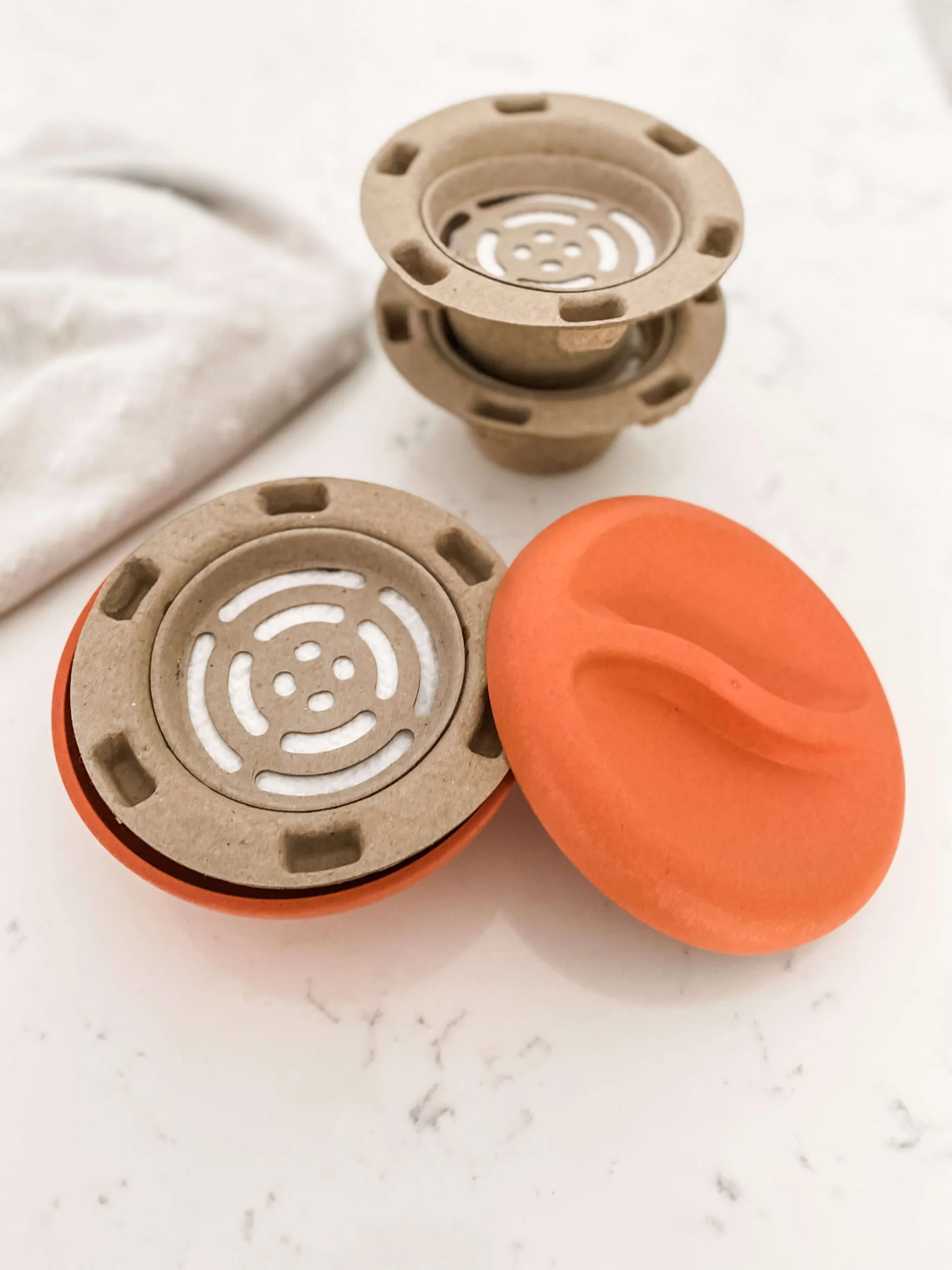 Our environmentally friendly Grease Hero drain guards are a simple solution to proper cooking oil and grease disposal. Simply set the drain guard in your sink’s drain, the counter, or a flat surface and pour your cooking fats, oils and grease directly from the pan into it. Wait one minute for the liquid to completely absorb into the recycled material of the drain guard and then dispose of it with your regular trash or at your local recycling facility.
Our environmentally friendly Grease Hero drain guards are a simple solution to proper cooking oil and grease disposal. Simply set the drain guard in your sink’s drain, the counter, or a flat surface and pour your cooking fats, oils and grease directly from the pan into it. Wait one minute for the liquid to completely absorb into the recycled material of the drain guard and then dispose of it with your regular trash or at your local recycling facility.Recently, we also launched GreaseHero PLUS which is a storage system for Grease Hero drain guards. We understand that not every meal you cook will have enough oil/grease to fill the drain guard and you may want to store it to use again until it is completely full. This is where Grease Hero PLUS comes in. With a lid that tightly attaches to the base, you can store your drain guard without having to worry about any lingering odors in your kitchen. GreaseHero PLUS is made from recycled materials and is dishwasher safe.
Proper cooking oil and grease disposal is not only important for your home and neighborhood, it’s critical for the health of our environment, wildlife and waterways.
____
Join our mission to save the environment. We aim to promote environmental, social and economic benefit, all while prioritizing the environment over our product life cycles… from the initial manufacture using recycled materials until final disposal.
Follow us on Instagram, Facebook, Twitter, LinkedIn and YouTube.
-
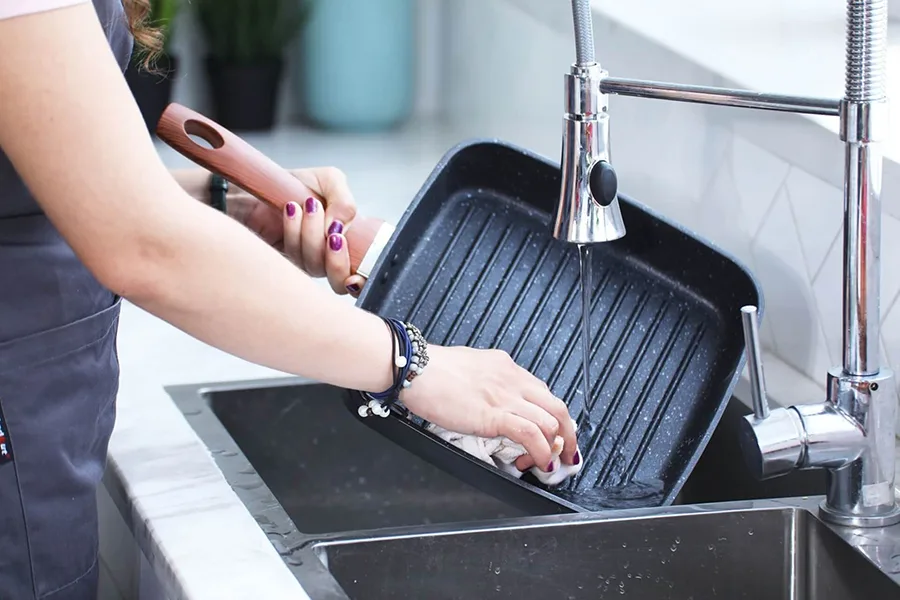
The Greasy Truth About Clogged Pipes
The greasy truth about clogged pipes is that we get them, none of us really like to talk about them and they are preventable. By taking simple actions in our home, we can limit the number of clogs we experience and drastically cut down on those plumbing bills.
Properly Dispose of Cooking Fats, Oils and Grease (Around the holidays and all year round)
Whether it is vegetable oil, bacon grease or turkey drippings they all need to be disposed of properly. When you send a pan of oil or grease down your sink, it doesn’t take long for it to adhere to the sides of your plumbing and accumulate. The oil and grease congeal and lock in food scraps as well. This turns into a hard blockage that restricts the flow of wastewater. When wastewater has nowhere to go it comes back into your home causing major property damage.
Wipe Out Those Mixing Bowls Before Rinsing
That butter, milk, cream and flour should be wiped clean from your mixing bowl before you wash it in the sink. These baking items tend to harden quickly and stick to the inside of your plumbing as well and emit a foul odor.
Depend Less on the Garbage Disposal
Garbage disposals streamline the dish washing process and make things just a little easier. The problem arises when you use yours a bit too frequently. The garbage disposal is a way to get unsightly items out of the kitchen quickly, however it is a major contributor to clogged pipes. The food that is rinsed in the garbage disposal is chopped up and then sent down your plumbing, some food though will get stuck inside your plumbing and cause the pipe diameter to narrow and eventually it becomes completely clogged.
Fatbergs Clog Sewers and Damage Neighborhoods
Entire neighborhoods can become flooded and damaged by a fatberg in the sewer line. Fatbergs in the sewer network grow very rapidly and eventually end up blocking entire portions of the sewer network.
They grow so fast because that one pan of oil or grease you rinsed down your sink, met up with other oil and grease your neighbors rinsed down their sinks. You can see how the issue grows exponentially. Once all of this fats, oils and grease meet up with food particles, wet wipes and other items flushed, it becomes hard as concrete and a major problem for sewer lines and water companies. Once a fatberg has blocked a section of a sewer line in your neighborhood, wastewater then gets pushed upward and flows out of drains and manholes into your neighborhood, homes, and the environment.
Put an End to Clogged Pipes with Grease Hero
Grease Hero is designed to be placed into the top of your kitchen sink drain, so you can quickly and easily pour the used cooking grease into it and then promptly dispose of it. It’s designed with recyclable materials to absorb the oil and grease waste and can be thrown out with your regular garbage. See Grease Hero in action on our YouTube channel. This one easy change in your kitchen cleaning routine will save you money from costly plumbing repairs, the city from expensive sewer damage, and our environment from deadly contamination.
____
Join our mission to save the environment. We aim to promote environmental, social and economic benefit, all while prioritizing the environment over our product life cycles… from the initial manufacture using recycled materials until final disposal.
Follow us on Instagram, Facebook, Twitter, LinkedIn and YouTube.
-
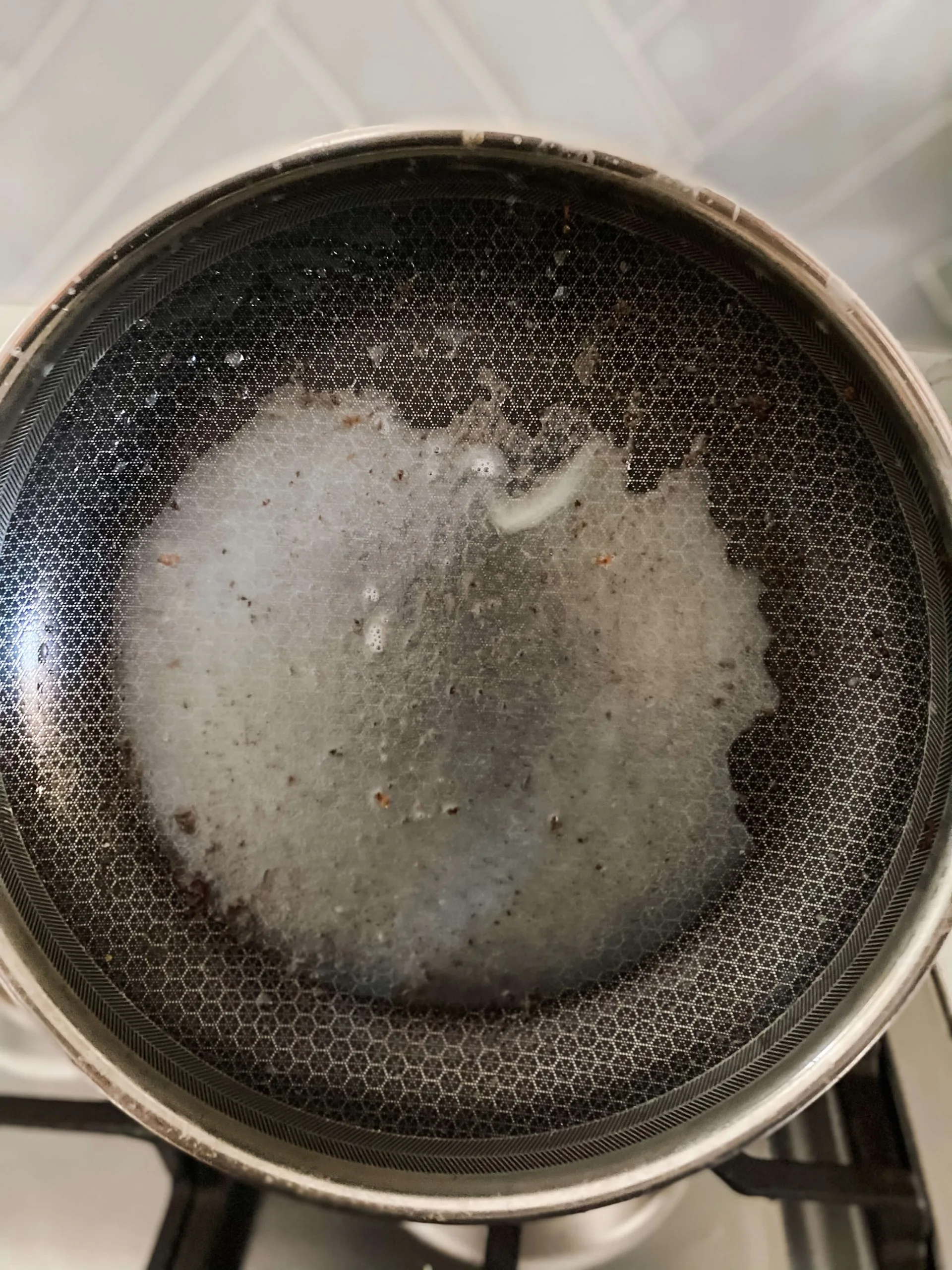
Congealed Grease Down the Sink is a Plumbing Nightmare
Congealed grease is a messy and expensive plumbing problem.
In liquid form grease seems like it would rinse easily down the drain, however that is not the case, grease quickly congeals after it is poured from your pan and into the sink, causing major plumbing problems. “Grease solidifies in the pipes and acts as a sticky trap for gunk and debris. Over time this blockage can clog the pipes or slow the drain. Grease also wreaks havoc on local sewer systems and septic tanks.” (Mr. Rooter)
Congealed Grease in Your Plumbing
When grease is poured down the sink and mixes with cooler water, within minutes it begins to cool and coat the inside of your plumbing. It congeals around the interior of your pipe and begins to shrink the diameter in which wastewater can drain through it. As you continue to use your sink, the congealed grease will begin to collect food particles from your garbage disposal and anything else that is rinsed—thus shrinking the width of your pipe even further. With improper rinsing habits, it will not take long before you begin to notice a foul smell emanating from your drain.
This foul smell will then turn into a major plumbing issue once your drain becomes completely clogged and wastewater is sent back up through the drains in your home.
The Binding Agent of Fatbergs? Congealed Grease.
With enough grease being rinsed from different homes in your neighborhood, fatbergs can grow, and grown and grow. The grease that doesn’t stick to the inside of your plumbing makes its way into the sewer network where it joins up with wastewater from your neighborhood.
This wastewater contains a wide assortment of chemicals and items, causing all of it to begin bonding together into a waxy compound in which fats, oils and grease are the main bonding agents. These waxy, almost soapy, balls are called fatbergs.
Fatbergs in the sewer network grow very rapidly and eventually end up blocking entire portions of the sewer network. They grow so fast because that one pan of oil or grease you rinsed down your sink, met up with other oil and grease your neighbors rinsed down their sinks. You can see how the issue grows exponentially. Once all of these fats, oils and grease meet up with food particles, wet wipes and other items flushed, it becomes hard as concrete and a major problem for water companies.
To date, the largest fatberg uncovered was in London in 2017 and it weighed in at 130 tons and 250 meters long.
Sewer Overflows Caused by Fatbergs
Once a fatberg has blocked a section of a sewer line, wastewater then gets pushed upward and flows out of drains and manholes into local neighborhoods, homes, and the environment.
When sewers overflow into the environment and waterways, the damage caused is not quickly repaired. Contaminants in the environment can look and smell terrible, but their impact goes beyond just aesthetics. Some pollutants resist breakdown and accumulate in the food chain. These pollutants can be consumed or absorbed by fish and wildlife, which in turn may be eaten by us. (NOAA)
Grease Hero Drain Guards
Ditch the congealed grease plumbing nightmare altogether with Grease Hero drain guards. The Grease Hero drain guard is designed to be placed into the top of your kitchen drain or on your countertop. You can quickly and easily pour the used cooking fat, oil or grease into it, and then promptly dispose of the entire drain guard, instead of rinsing these harmful contaminants down the kitchen sink. Our Grease Hero drain guard is made with recyclable materials to absorb the fats, oils and grease and can be thrown out with your regular garbage. Stock up on Grease Hero drain guards today.
Learn more about fatbergs with these additional articles:
- Six (Almost) Unbelievable Facts About Fatbergs
- Bacon Grease — The Ultimate Drain Clogging Culprit
- Two Easy Ways to Dispose of Grease Hero Drain Guards
____
Join our mission to save the environment. We aim to promote environmental, social and economic benefit, all while prioritizing the environment over our product life cycles… from the initial manufacture using recycled materials until final disposal.
Follow us on Instagram, Facebook, Twitter, LinkedIn and YouTube.
-
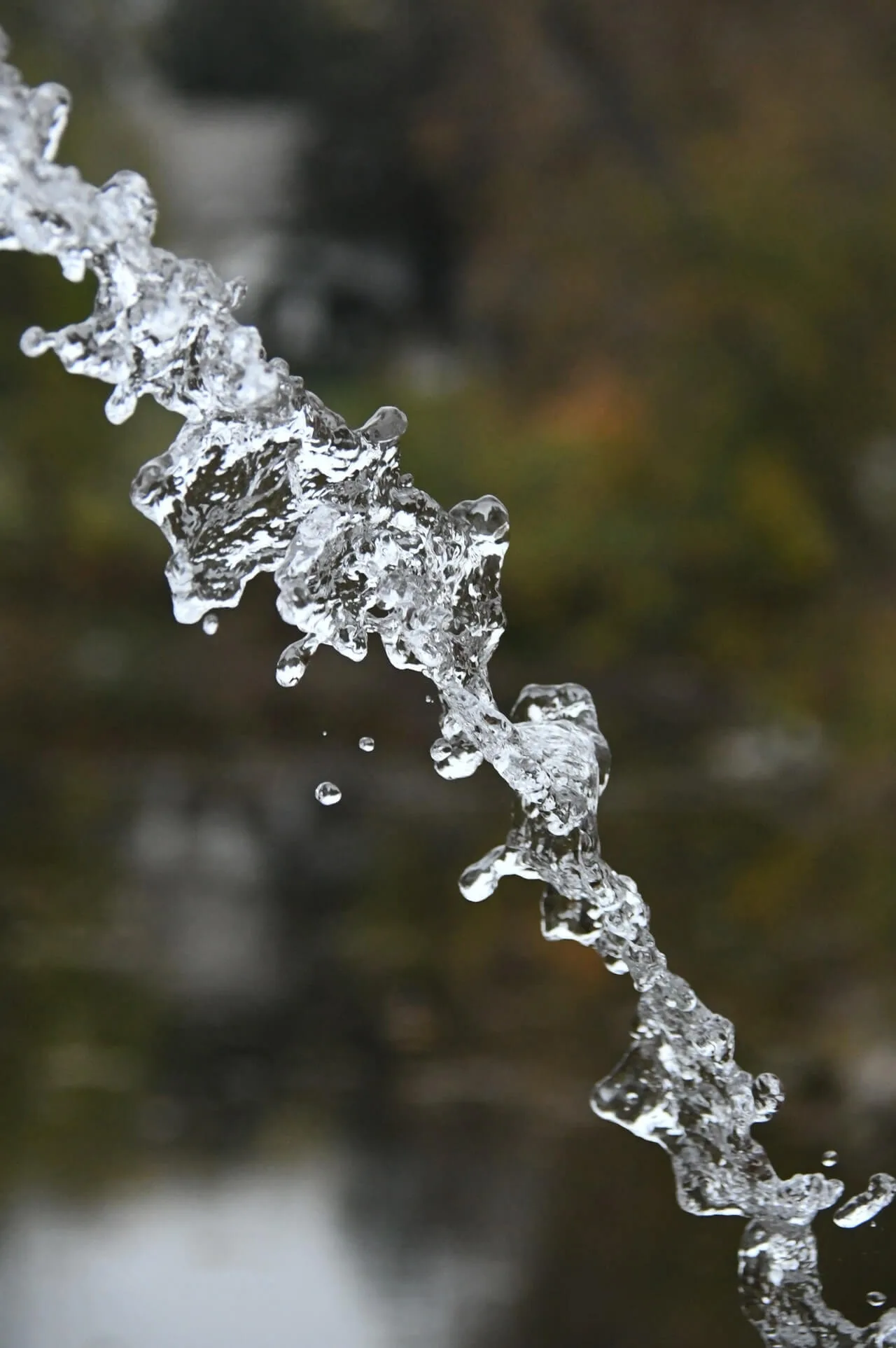
How Cooking Fats, Oils and Grease Damage the Environment
As fatbergs continue to make headlines, it’s clear that many people do not know how damaging cooking fats, oils and grease are to the environment. These cooking leftovers can wreak havoc on local eco-systems when they spill into the environment through sewer overflows. Before you rinse that pan of bacon grease down the kitchen sink drain here are three things to consider.
Life-Threatening Illnesses
From the EPA: Raw sewage contains disease-causing pathogens, including viruses, bacteria, worms, and protozoa. Diseases resulting from enteric pathogens range from stomach flu and upper respiratory infections to potentially life-threatening illnesses such as cholera, dysentery, Hepatitis B, and cryptosporidiosis.
When sewer overflows contaminate public places and waters, people can be put at risk of exposure to the untreated sewage when: Drinking from a contaminated community water supply, eating contaminated fish or shellfish and swimming in contaminated open water.
Damaging Long-Term Effects
The EPA states that: Animal fats and vegetable oils are regulated under 40 CFR 112, which has identical requirements for petroleum and non-petroleum oils. Petroleum oils, vegetable oils, and animal fats share common physical properties and produce similar environmental effects. Like petroleum oils, vegetable oils and animal fats and their constituents can:
- Cause devastating physical effects, such as coating animals and plants with oil and suffocating them by oxygen depletion;
- Be toxic and form toxic products;
- Destroy future and existing food supplies, breeding animals, and habitats;
- Produce rancid odors;
- Foul shorelines, clog water treatment plants, and catch fire when ignition sources are present; and
- Form products that linger in the environment for many years.
Toxic for Humans and Wildlife
Contaminants in the environment can look and smell pretty bad, but their impact goes beyond just aesthetics. Some pollutants resist breakdown and accumulate in the food chain. These pollutants can be consumed or absorbed by fish and wildlife, which in turn may be eaten by us. Chemicals can also get into sediments, impacting large coastal areas, threatening human health, and reducing the economic well-being of regions that depend on a healthy coastal environment (NOAA).
Now imagine a neighborhood full of people all rinsing a pan of grease down the sink, that grease coats the sewer restricting water flow, forms a fatberg and then sends sewage into the environment through an overflow. While cooking fats, oils and grease seem harmless enough when you are cooking, improper disposal of them can have lasting negative effects.
The Grease Hero
The Grease Hero is a convenient and hassle-free way of disposing of cooking fats, oils and grease after cooking a meal. The drain guard is made of recycled materials and quickly absorbs the fats, oils and grease that you pour into it directly from your cooking pan. You then simply dispose of the entire Grease Hero drain guard into your trash. This keeps that harmful cooking oil and grease contaminants out of your plumbing, city sewers and the environment.
____
Join Our Mission to save the environment and properly dispose of Fats, Oils, and Grease.
-

Fatbergs: Three Common Plumbing Myths Debunked
As fatbergs make headlines and continue to plague city sewers, we want to take a moment to bust three very common plumbing myths that help cause them. City sewers along with your home’s plumbing is something that we should always be thinking about and considering because both affect us financially and environmentally. Below, we debunk three plumbing myths that are causing major problems worldwide.
Myth 1: Rinsing hot cooking grease and fat down the sink is fine.
False. Grease and fat will solidify. It can be tempting to rinse this liquid down your sink to get it out of your home, but this liquid quickly turns into a solid. When grease and fat solidify in your home’s plumbing and city sewers, this buildup clogs your pipes so that wastewater can no longer drain properly. Once your pipe has become too clogged, wastewater starts backing up into your home—through sinks, toilets, showers and bathtubs.
When grease and fat solidify in city sewers, ‘monster’ fatbergs quickly grow and clog entire sections of sewer lines. When wastewater can no longer flow through the sewer, it backs up and spills out through street drains and seeps into the environment.
Myth 2: Pouring liquid soap down the sink after rinsing cooking fats, oils and grease will push it through your pipe.
False. Pouring liquid soap down your drain will not push the cooking fats, oils and grease through your pipes and into city sewers. When cooking grease and fat mix with cold water, they solidify very quickly and will start to clog your plumbing.
It is always best to properly and responsibly dispose of your cooking fats, oil and grease. They should never make their way into your kitchen’s plumbing.
Myth 3: If wipes say “flushable” they are alright to flush down the toilet.
False. Wipes are not flushable, and this common misleading packaging is wreaking havoc on city sewers and are now a main contributor to the rapid rise of fatbergs. When wipes meet cooking fats, oils and grease in city sewers it can be equated to bricks and mortar—they build up to create fatbergs that are as hard as concrete.
If you plan on using wipes in your bathroom, the best way to dispose of them is in the trash bin. Cities around the globe have been coming up with catchy phrases to help remind people that wipes should never be flushed down the toilet—“Wipes Clog Pipes”, “Bin It, Don’t Block It”, “Only the 3 P’s”, “Wipes Destroy Pipes”.
Now that you have the answers to these common plumbing myths, you can make small changes to your routine to help your home, city and local environment. Keep your home’s plumbing running smoothly and fatbergs out of city sewers by properly disposing of all cooking fats, oils and grease and only flushing the 3 P’s down the toilet.
The Grease Hero
The Grease Hero is an easy, environmentally friendly and mess-free way to quickly and responsibly dispose of all cooking fats, oils and grease. The Grease Hero is designed to be placed into the top of your kitchen drain or on your countertop. You can quickly and easily pour the used cooking fat, oil or grease (FOG) into it, and then promptly dispose of the entire drain guard, instead of rinsing these harmful contaminants down the kitchen sink. Our Grease Hero is made with recyclable materials to absorb the fats, oils and grease and can be thrown out with your regular garbage.
____
Join Our Mission to save the environment and properly dispose of Fats, Oils, and Grease.
-

Fatberg Prevention Campaign Partnerships
Our GreaseHero team understands that fatberg prevention starts with community outreach and education. If the community understands the harm being caused by these congealed lumps of fats, oils, grease, food scraps, wet wipes, diapers, etc. and the financial burden it is causing their city and ultimately themselves, we know that people will be eager to change their habits.
Cities around the globe are tackling these ‘giant’ fatbergs with clever awareness campaigns that aim to educate the public. For example:
- New York City: Trash it. Don’t Flush it.
- London: Bin it – don’t block it
Massive fatbergs have emerged in locales such as London, New York City, Baltimore, South Carolina, Michigan, New Jersey. You may not have heard anything, since most of them don’t even make the news, but they are a real and growing problem. Recently, a fatberg was discovered in the sewers of a tiny, coastal town in Southwestern England that stretched for 210 feet. (Pacific Standard)
Fats, Oil and Grease
While fatbergs are comprised of a range of (unsightly) items—fats, oils and grease (FOG) are the main culprit. They work to bind the entire fatberg together, which allows it to grow at a rapid rate.
Unfortunately, many people do not know how to properly dispose of FOG and often it is simply rinsed down the kitchen sink. Rinsing a pan of grease down the kitchen sink is bad for your plumbing, it adds to the growing fatberg epidemic and it’s damaging for the environment. Properly and responsibly disposing of fats, oils and grease at both a residential and commercial level is key to preventing fatbergs from growing in city sewers.
Fatberg Prevention Campaigns
The goal of the FOG Safe Drain Guard is to keep fats, oils and grease out of plumbing, city sewers, the environment and ultimately our oceans.
“Don’t Feed the Fatberg”
The GreaseHero is designed to be placed into the top of your kitchen drain or on your countertop. You can quickly and easily pour the used cooking fats, oils or grease (FOG) into it, and then promptly dispose of the entire drain guard, instead of rinsing these harmful contaminants down the kitchen sink. Our GreaseHero is made with recyclable materials to absorb the fats, oils and grease and can be thrown out with your regular garbage.
If your city or water and sanitation department is interested in learning more about the GreaseHero or partnering with us on a fatberg prevention campaign, please send us an email at info@greasehero.com
Also, our GreaseHero team will be at the International Home and Housewares Show (March 2nd – 5th) in Chicago. Our company will be in the ‘Inventors Corner’ at booth N 7368. If you are in the area, or plan on attending the show, and would like to talk with our Founder, please send us an email so we can schedule a meeting time.
____
Join Our Mission to save the environment and properly dispose of Fats, Oils, and Grease.
-

A Top Kitchen Product and Camping Hack
We all appreciate a great life hack—Grease Hero is just that, a versatile kitchen product and life hack that you will want to share. The Grease Hero works both inside the kitchen and outside while camping.
Grease Hero in the Kitchen
Grease Hero is a top kitchen product and make disposing of leftover FOG (fats, oils and grease) quick and easy. Did you know that, 540+ gallons of grease slip down major city drains each month and that 100 million gallons of oil are dumped illegally each year? It’s true. Each time a pan of oil and grease gets rinsed down the kitchen sink, you are increasing your chances for a major plumbing problem. This oil and grease accumulates in city sewers, which leads to fatbergs and sewer overflows.
Clogged sewer lines send sewage into homes, yards, streets, and local waterways. When this untreated sewage makes its way into your home and the local environment, we are all at risk. Fresh water supplies become contaminated and we are exposed to a range of diseases and germs.
Also, most homeowners’ insurance doesn’t cover damage caused by a sewer backup into your home. That means you are solely responsible for cleaning and repairing the damaged caused.
Grease Hero while Camping
Spice up your meals when you are away from home. Camping doesn’t have to be synonymous with boring meals. It’s 2019, time to get creative and make your meals outside something to rave about.
Planning on fishing? Whip up a fish fry for your family and friends! Yes you can make delicious fried fish and properly dispose of that cooking oil afterwards (HINT: Grease Hero!). Picture the shrimp fajitas, vegetable stir fry and the surprise looks you will get from your camping buddies when you say that you are making your Grandmother’s famous Chicken Fried Steak for dinner.
Award winning, Chef Anthony Serrano recently reviewed the Grease Hero and he shared a great tip of his own, “pour your oil into a Grease Hero drain guard and then use that drain guard as a fire starter.” (Brilliant!)
On your next camping, boating or RV trip let your creativity flow and plan a delicious meal—also, don’t forget to pack a Grease Hero!
When we developed the Grease Hero our goal was to make it easier to properly dispose of fats, oils and grease to help keep these contaminants out of the local environment and waterways. We developed a kitchen product that was simple to use and environmentally friendly. Try one today in your kitchen or pack one up for your next adventure!
Where can I find the Grease Hero?
Grease Hero Retail Partners
- Amazon
- Big Save Markets
- City Mill
- Hawaii based NEX NAVY Exchange (all four locations)
- Purchasing Hui of Hawaii
- Simply Organized
- Times Supermarket
*As we add retailers, we will update the Shop page on our website.
____
Join Our Mission to save the environment and properly dispose of Fats, Oils, and Grease.
-

Five Easy Ways to Live an Eco-Friendly Lifestyle
Living a sustainable lifestyle is easier than you think—here we share five easy ways you can start living an eco-friendly lifestyle in 2019. We understand that big lifestyle changes can be overwhelming, but if you start small and really incorporate the small changes daily, you will have a big impact on your local environment and work yourself up to those larger goals.
Get your eco-friendly resolution off on the right foot by including these daily changes to your everyday life:
Pay Attention to Your Water Usage
Simple acts such as turning your faucet off while you brush your teeth or washing your dishes in a sink full of water, instead of letting it run, reduces your water usage and your monthly utility bill. Thirsty? Reach for a glass of tap water instead of bottled water so you aren’t wasting that packaging as well.
Properly Dispose of all Fats, Oils & Grease
Did you know that, 540+ gallons of grease slip down major city drains each month and that 100 million gallons of oil are dumped illegally each year? It’s true. Sewer overflows from FOG damage homes, personal property and the environment—not to mention that they are a key component of fatbergs lurking in city sewers. Keep these contaminants out of the environment, our fresh water supply and the ocean by properly disposing of them. (Hint: Grab a box of Grease Hero drain guards to make proper disposal quick and easy!)
Recycle
You can help reduce pollution just by putting that soda can in a different bin. If you’re trying to choose between two products, pick the one with the least packaging. If an office building of 7,000 workers recycled all of its office paper waste for a year, it would be the equivalent of taking almost 400 cars off the road [source: EPA].
Ditch Plastic Bags
Heading to the grocery store? Throw a few reusable grocery bags in the car. It’s no secret that plastic bags are bad for the environment—Plastic bags make up more than 10% of washed-up debris that pollute the U.S. coastline; an estimated one million birds, 100,000 turtles, and countless other sea animals die each year from ingesting plastic.
Reduce Your Driving
Leave the car at home and grab those walking shoes, hop on public transit or carpool. If you can stay off the road just two days a week, you’ll reduce greenhouse gas emissions by an average of 1,590 pounds (721 kilograms) per year [source: How Stuff Works]. Combine your errands — hit the post office, grocery store and home repair place in one trip. It will save you gas and time.
Living a more eco-friendly lifestyle doesn’t have to be a challenge. Here are a few additional eco-friendly examples: Actions such as turning lights off in a room that no one is using, collecting trash from the beach and clearing a storm drain from debris takes a minimal amount of time and makes a lasting impact.
Simple changes to your daily routine can have profound impacts on the environment.
____
Join Our Mission to save the environment and properly dispose of Fats, Oils, and Grease.
-

How bad is a sewage overflow for the environment?
We are going to get right to the point, a sewage overflow is bad for the environment and public health. When raw sewage makes its way into the environment and ultimately our fresh water supply, we are all at risk. Our aging infrastructure, coupled with a change in food preferences (fried foods) and modern products (wet wipes), are leading to more sanitary sewage overflows.
“Much of the nation’s sewage collection infrastructure is between 30 and 100 years old, placing them at increased risk for leaks, blockages and malfunctions due to deterioration.” (United States Environmental Protection Agency | EPA)
Health Risks from a Sewage Overflow
From the EPA: Raw sewage contains disease-causing pathogens, including viruses, bacteria, worms, and protozoa. Diseases resulting from enteric pathogens range from stomach flu and upper respiratory infections to potentially life-threatening illnesses such as cholera, dysentery, Hepatitis B, and cryptosporidiosis.
When sewage overflows contaminate public places and waters, people can be put at risk of exposure to the untreated sewage when: Drinking from a contaminated community water supply, eating contaminated fish or shellfish and swimming in contaminated open water.
Aside from health risks to humans – animals and ecosystems are also put in danger by sewage overflows. A key concern with sewage overflows which enter rivers, lakes, streams, or wetlands is their effect on water quality. The environmental impacts of sewage include hypoxia, harmful algal blooms, habitat degradation, floating debris, and impacts to threatened or endangered species. According to the U.S. Fish and Wildlife Service, more than 50% of threatened and endangered species are water-dependent.
Economic Activity is Disrupted
When sewage enters local bodies of water (oceans, streams, wetlands) it puts a halt on economic activity. Fishing has to slow down or cease completely and a ban can be placed on harvesting anything from the contaminated area and people are prohibited from entering the water. This is particularly hard if your state depends on an aquatic industry or if your state relies on these for tourism, much like Hawaii does.
“During 1995, as much as 6.7 million acres of shellfish beds were forbidden to be harvested by the government. A staggering 72% of these restrictions cited water pollution as the reason. Fisheries existing in waters contaminated by sewage overflows also face the same kind of closure, if not lowered production and lowered consumer confidence in the product. Contaminated bodies of water will have higher restrictions on factory wastewater discharges. These limits will make factories lower their production and will make companies consider relocating and therefore removing much needed jobs from the local community.” (Midwest Remediation)
Sewage Overflows Cause Major Property Damage
From the EPA: An untold number of private basement backups occur each year. In addition to the problem of human exposure, these spills can cause structural damage to building frames and foundations as well as water damage to electrical and gas appliances that are typically located in the basement. They can also damage or destroy floor and wall coverings and personal property. The costs to repair damage and disinfect the area can range into the thousands and are not typically covered by insurance.
Sewer overflows frequently spill into homeowner yards, damaging landscaping, driveways, and outside possessions. Municipal property damage from a major sewer overflow can be severe. Communities pay billions per year to clean up and repair overflow damage to sewer infrastructure, roads and other transportation assets, parks and recreation areas, and municipal water supplies and treatment facilities.
Key Takeaway
Sewage overflow solutions are minimal and once raw sewage enters homes, neighborhoods and the local environment, the damage is hard to remedy. By properly disposing of fats, oils and grease as well as watching what we flush down the toilet, we can help minimize the amount and severity of sewage overflows, and have a long-term positive impact on not only our own home’s plumbing and city sewer systems but the environment as well.
____
Join Our Mission to save the environment and properly dispose of Fats, Oils, and Grease.
-

Make Your Home’s Plumbing a Priority
 A home is an investment, and for many people, it’s the largest investment they will ever make. Keeping a well-maintained home goes beyond the yard and paint colors, but to the very foundation of the structure. If your plumbing is not working like it should, your investment is not performing like it should.
A home is an investment, and for many people, it’s the largest investment they will ever make. Keeping a well-maintained home goes beyond the yard and paint colors, but to the very foundation of the structure. If your plumbing is not working like it should, your investment is not performing like it should.Often times you don’t give your plumbing any thought until there is a problem—a leaking pipe, a clogged pipe or a broken pipe. For most of us our home’s plumbing is out of site and out of mind.
Below are three reasons you should make your home’s plumbing a priority.
Plumbing Issues are Expensive
The average cost of having a professional plumber come to your home for a clogged pipe has increased to $211 this year (Home Advisor). This doesn’t factor in the additional costs associated with snaking a line or sending a camera down your line to try to figure out what is going on. Plumbers get very expensive, very quickly.
In addition, some plumbers increase their fees around major holidays because plumbing issues spike around these times.
If you do end up with a broken pipe, you are potentially facing thousands of dollars in plumbing and home repairs.
Sanitary Concerns
Clogged sewer lines send sewage into homes, yards, streets, and local waterways. When this untreated sewage makes its way into your home and the local environment, we are all at risk. Fresh water supplies become contaminated and we are exposed to a range of diseases and germs.
Also, most homeowners’ insurance doesn’t cover damage caused by a sewer backup into your home. That means you are solely responsible for cleaning and repairing the damaged caused.
Fatbergs
Over half the global population currently live in cities, though this is set to rise to 70% by 2050. (Evening Standard UK) With cities growing and infrastructure aging, fatbergs are on the rise.
“Fatbergs are large lumps of fatty gunk in the sewer system which can set as hard as concrete. They are caused by fat, oil and grease (FOG) being disposed of incorrectly down sinks and drains, and then accumulating over time. They may combine with other items which should not have been flushed away, such as wet wipes and sanitary products.” (ITV Report)
A majority of people don’t understand the harm caused by rinsing a pan of grease down the kitchen sink.
When FOG waste makes its way into our home’s plumbing, city sewer lines and water treatment facilities it causes major problems. FOG waste floats down your drain as a liquid, but quickly solidifies in your pipes and city sewers, causing buildup and restricting the flow of sewage. Thus, causing a massive fatberg to form.
When pipes become completely clogged from a fatberg, sewage is no longer able to drain properly and spills out into your home and comes up through street drains and manholes. When raw sewage flows into the environment, the delicate ecosystem is damaged, and our drinking water becomes contaminated.
No matter which way you look at it, plumbing issues are stressful. The best way to keep these issues at bay is to use your plumbing responsibly. Never rinse FOG (fats, oils and grease) down your kitchen sink and practice the 3Ps when it comes to your toilets.
Responsibly Dispose of FOG Waste with Grease Hero Drain Guards
The Grease Hero is designed to be placed into the top of your kitchen drain, so you can quickly and easily pour the used cooking fat, oil or grease (FOG) into it, and then promptly dispose of the entire drain guard, instead of rinsing these harmful contaminants down the kitchen sink. Our Grease Hero drain guard is made with recyclable materials to absorb the fats, oils and grease and can be thrown out with your regular garbage.
____
Join Our Mission to save the environment and properly dispose of Fats, Oils, and Grease.
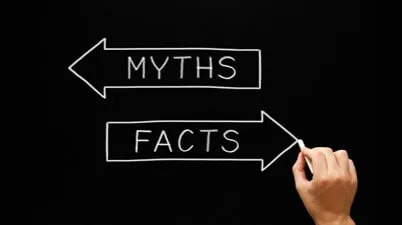
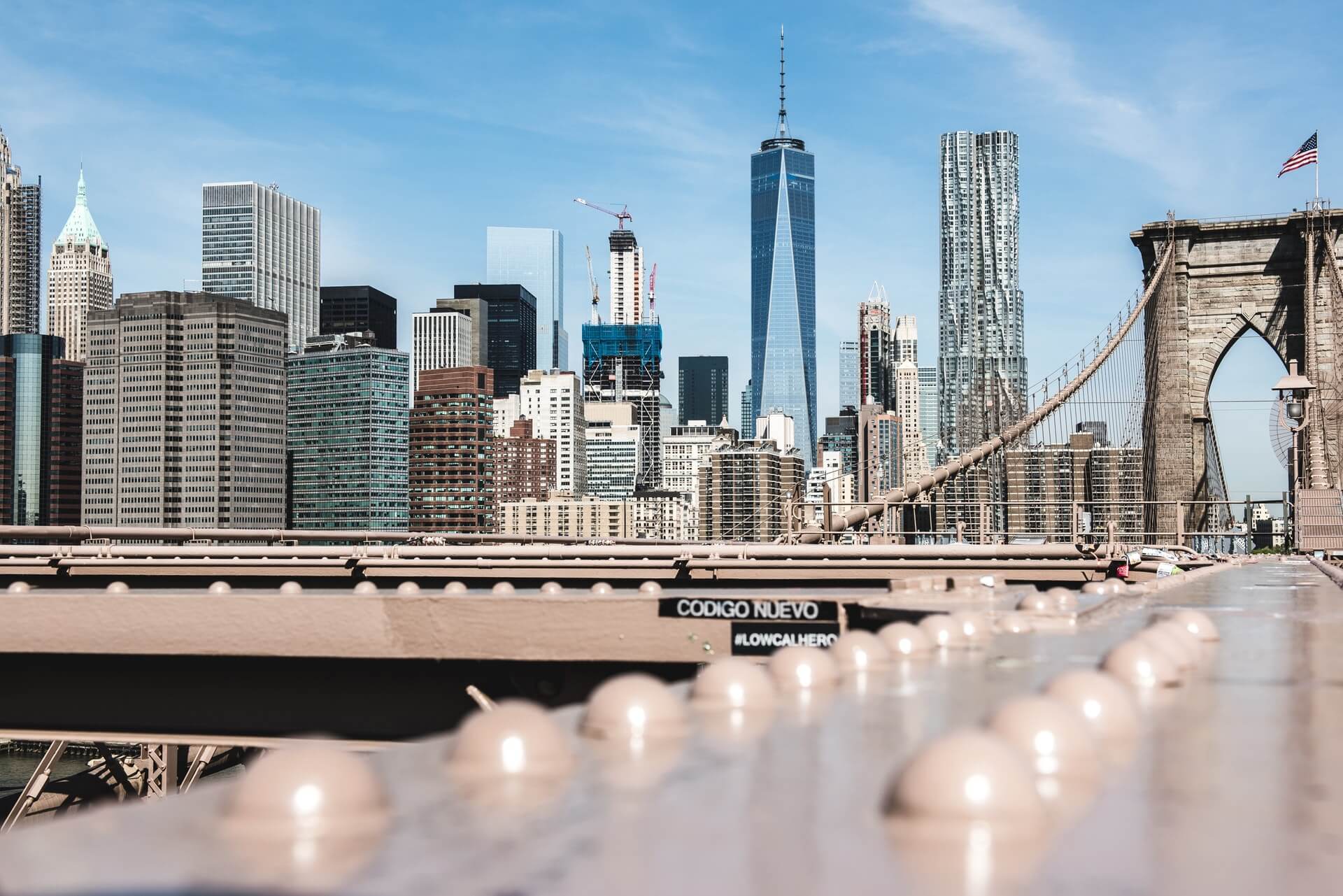
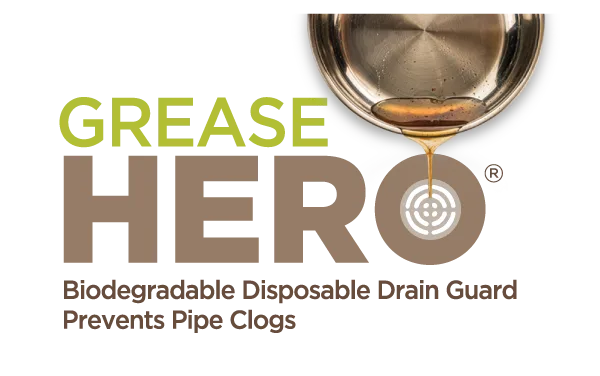
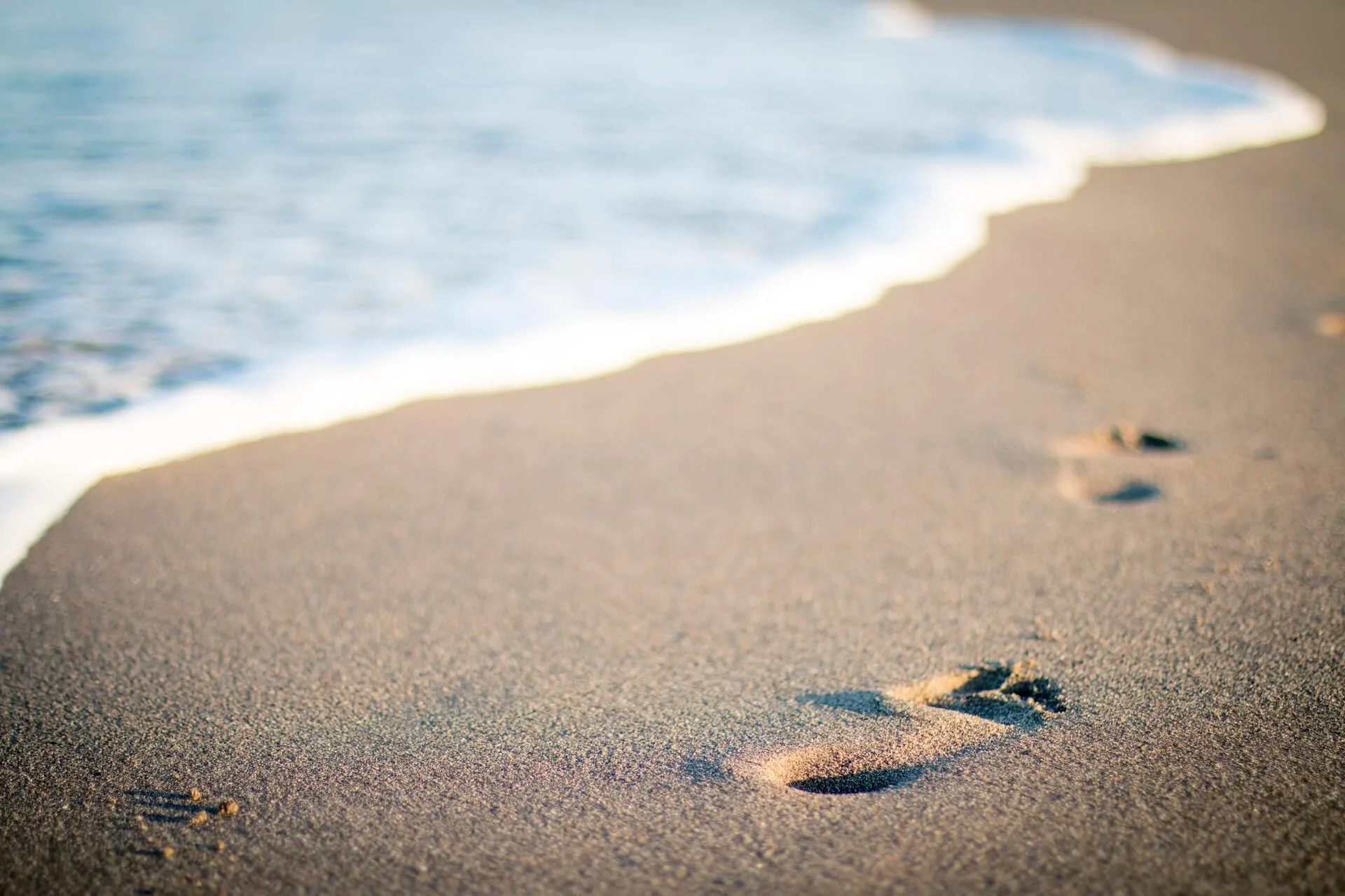
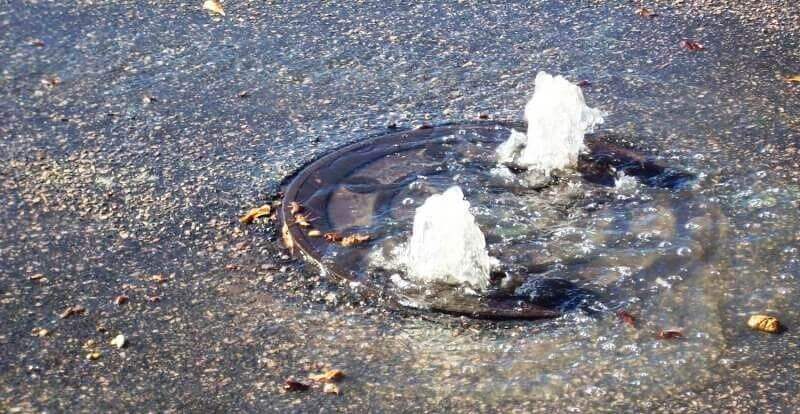
 A home is an investment, and for many people, it’s the largest investment they will ever make. Keeping a well-maintained home goes beyond the yard and paint colors, but to the very foundation of the structure. If your plumbing is not working like it should, your investment is not performing like it should.
A home is an investment, and for many people, it’s the largest investment they will ever make. Keeping a well-maintained home goes beyond the yard and paint colors, but to the very foundation of the structure. If your plumbing is not working like it should, your investment is not performing like it should.